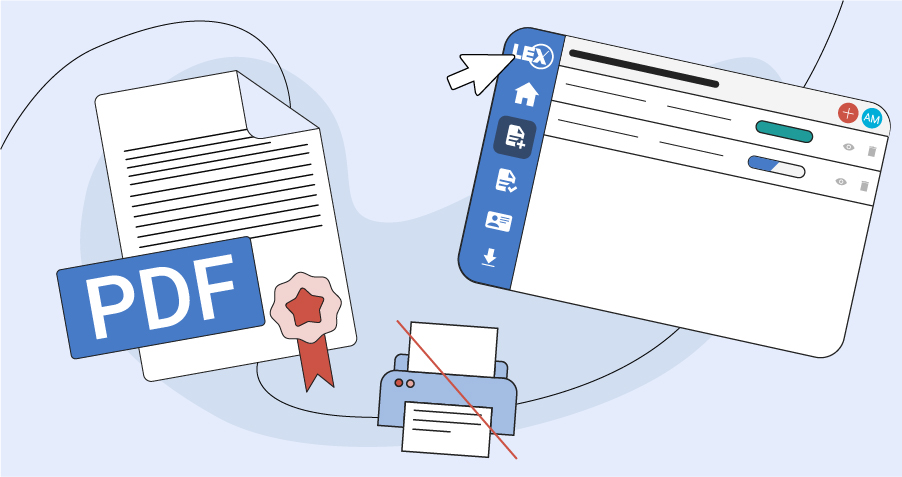Share on :
When signing a private deed (contract of sale, rental contract, insurance contract), it is customary to add a handwritten note. This confirms the signatory's willingness to commit to the terms of the contract.
Among the most common handwritten references are :
- "Read and approved",
- "Good for approval",
- "Good for,
- "To assert what is right".
But do the habits you adopt when signing a contract have any legal value? We take a closer look in this article.
Why do we use the words "read and approved" in our private contracts?
This custom stems from the former article 1326 of the French Civil Code, in the version in force between February 17, 1804 and July 13, 1980.
Since the text was repealed in 1980, some proponents of handwritten wording have defended its value. For example, the more common " read and approved " would confirm that the signatory had read the contract.
Is this information still legally valid?
Since 1980, in accordance witharticle 1367 of the French Civil Code, the only formality required for a private deed is the signature. Henceforth, handwritten details have no legal value.
Constant case law reaffirms this principle:
-
The words "Lu et approuvé" (read and approved) "constitute a formality of no significance" (Cass. 1e civ. January 27, 1993, no. 91-12.115).
-
The absence of the words "Lu et approuvé" (read and approved) is not accepted as evidence of lack of consent to the deed in question (Cass. 2e civ. January 17, 2019, no. 18-11.061).
-
It was also specified that the mention "Bon pour" was not required for the validity of a transaction (Cass. soc. March 19, 1991 n° 87-44.470).
-
"Apart from the exceptions provided for by law, a private deed is not subject to any formal requirement other than the signature of those who are bound by it" (Cass. 1e civ. October 30, 2008, n°07-20.001).
Are there any exceptions to the lack of legal value of such information?
This article deals only with private deeds and not with authentic instruments. The latter may be subject to different rules.
A private deed(articles 1372 et seq. of the French Civil Code) is a written document drawn up by the parties themselves under their sole signature, without the intervention of a public official. It differs from an authentic deed(article 1369 of the Civil Code).
However, certain private deeds are subject to a formalism that requires the inclusion of a handwritten note. These include acknowledgements of debt(article 1376 of the French Civil Code) and guarantees (article 2297 of the French Civil Code).
"Read and approved" mention and electronic signature
These notes, inherited from the "paper" tradition, only serve to comfort signatories long accustomed to writing them mechanically.
While these are required for most handwritten contracts, only the electronic electronic signature guarantees the consent of the signatory. To the conditions stipulated in the digital document. Just like the signature image applied to a document. Only the electronic signature guarantees the integrity of the signed document.
Aware of this tradition, the Lex Enterprise solution does not prevent the use of such wording. Indeed, a signatory can, if he or she wishes, import a predefined signature image that includes the words "read and approved", for example. Or any other similar wording.
In addition to this, and to ensure that the signatory reads and approves a document, Lex Enterprise also enables :
- set the mandatory viewing of a document before signing it. This ensures that the document is read before it is signed;
- set up validation steps prior to signature. This also ensures that a document is approved before it is signed.
" Handwritten statements are therefore not useful for the validity of the contract. The addition of these mentions is simply the result of a habit that, with digital technology, seems destined to disappear," asserts Anna Baciotti, Legal and DPO Manager at Lex Persona.







